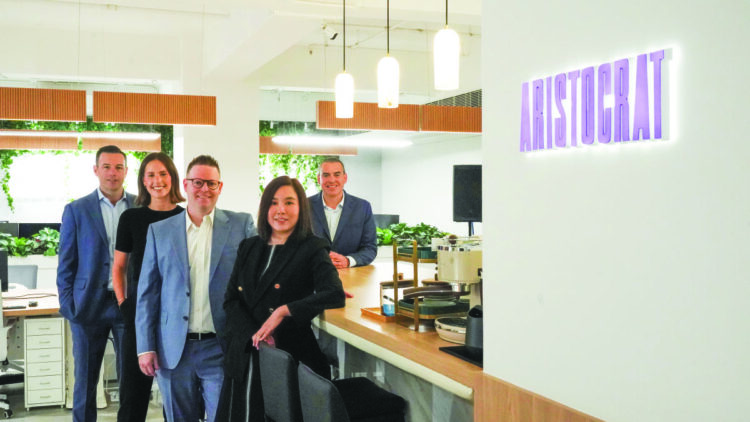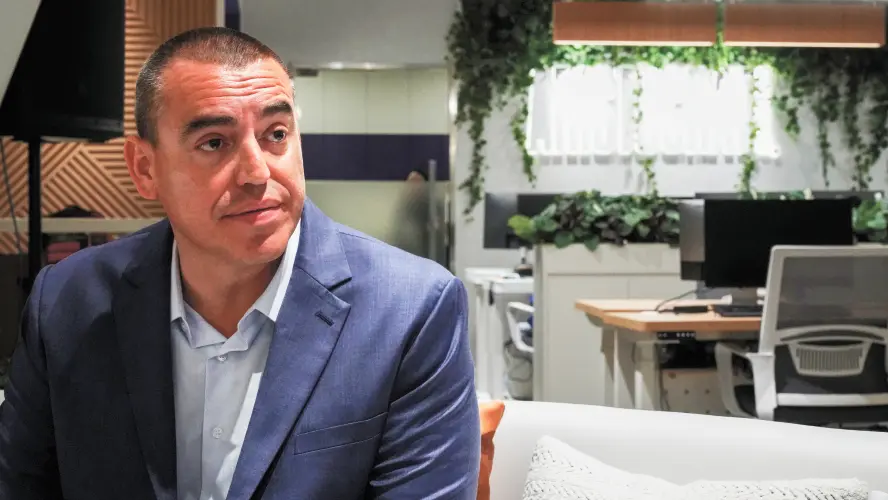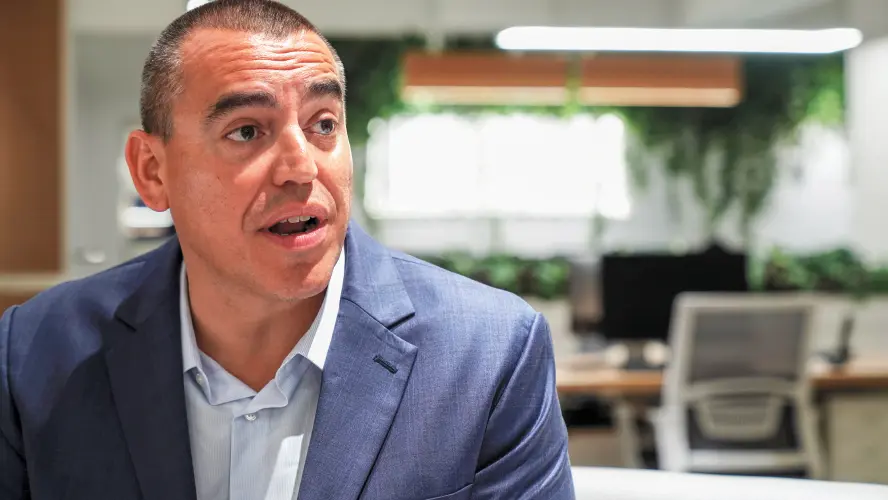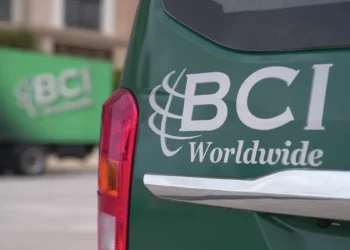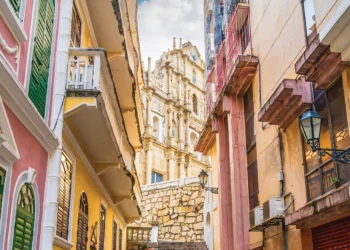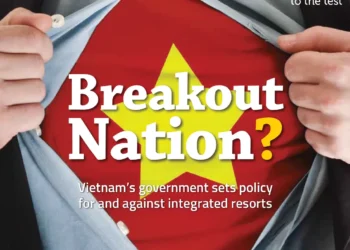While in Macau for the opening of the company’s new office space, Aristocrat Gaming’s Global CEO, Hector Fernandez, sat down with Inside Asian Gaming to discuss the gaming supplier’s global vision and why Asia is emerging as a key success story.
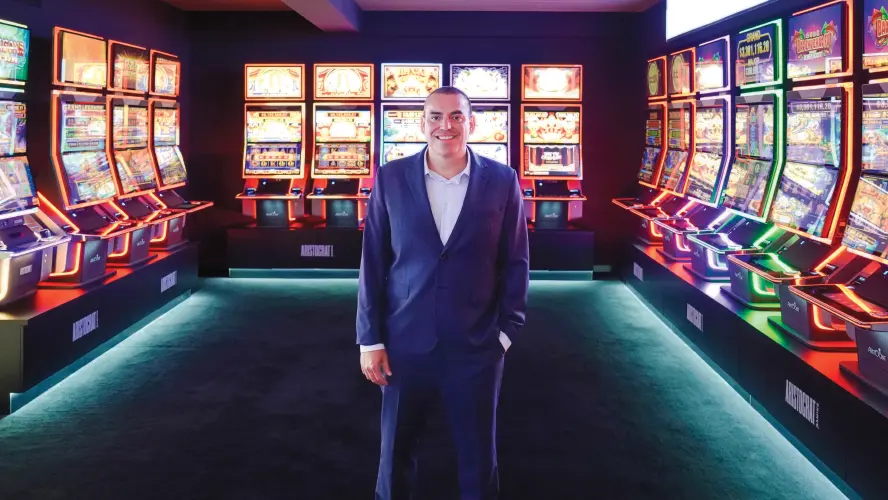
Andrew W Scott: Hector, for our audience and people who may not know you, can you tell us a little bit about your background and how you got into the gaming industry?
Hector Fernandez: Sure. A lot of people don’t know I was born in Guatemala. My parents moved us to the US when I was about one year old, so I was very fortunate because I got access to education. I really believe that education is the great equalizer. I went to undergrad and then I worked at Deloitte out of undergrad, went to business school. After business school I wanted to work somewhere where I could see a product on a shelf, so I went to work at Procter & Gamble and moved to the Midwest. After that, I did a stint at [biotech firm] Amgem and then after that at Western Digital in the technology space. Then I got a call from an executive recruiter about this opportunity in Vegas for a gaming company, so I went to go visit. There were two things that really stood out to me. Number one was the culture: I really believed in the culture and the things that they were doing. And number two, just the vast opportunity that exists in this business to really push the boundaries and do things a bit differently.
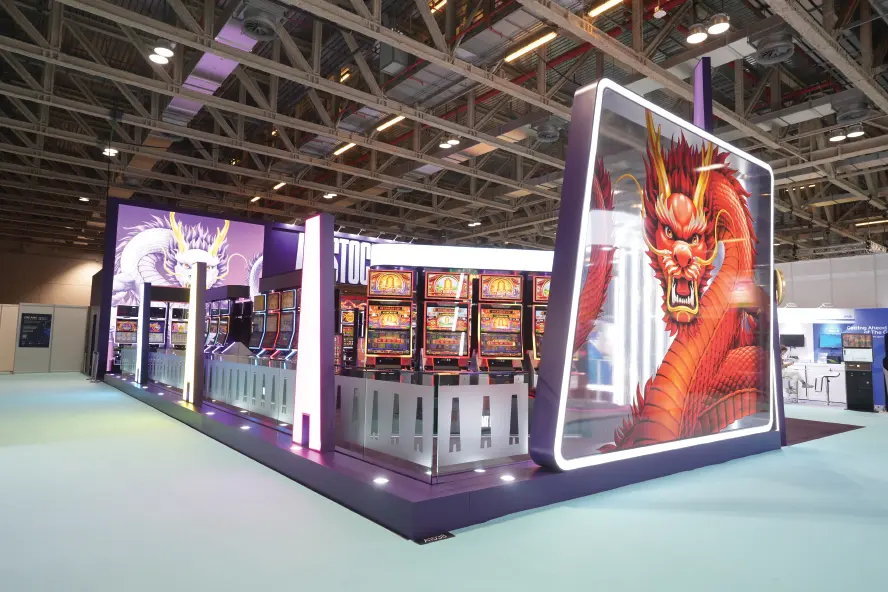 AWS: How has your finance background influenced your role as Global CEO at Aristocrat?
AWS: How has your finance background influenced your role as Global CEO at Aristocrat?
HF: A lot of people in these roles tend to come from a sales and marketing type background, but one of the things they struggle with when they’re running a business is the numbers, and they have to spend a lot of time looking at the data to make decisions. For me it was the opposite. The numbers are the easy part so I don’t actually spend a lot of time doing that, but I had to learn the business, get out and see customers and travel around the world, and that’s what I’ve spent my time doing: being present, experiencing the local challenges, the local opportunities, and then making sure that we have the right global strategy.
AWS: Previously, you were in charge of the Americas and Europe before moving into your current global role in 2022. How have you found the adjustment from a purely Western perspective to global?
HF: I think the adjustment actually was relatively easy. At P&G I had a global role, so I got to spend a lot of time doing business in Asia specifically and spent quite a bit of time here. One of the things you realize with gaming is there’s about 85% commonality around the world, so it’s the last 15% that’s different – and that last 15% is critical because you can’t learn it in a PowerPoint presentation. You’ve got to live it and experience it.
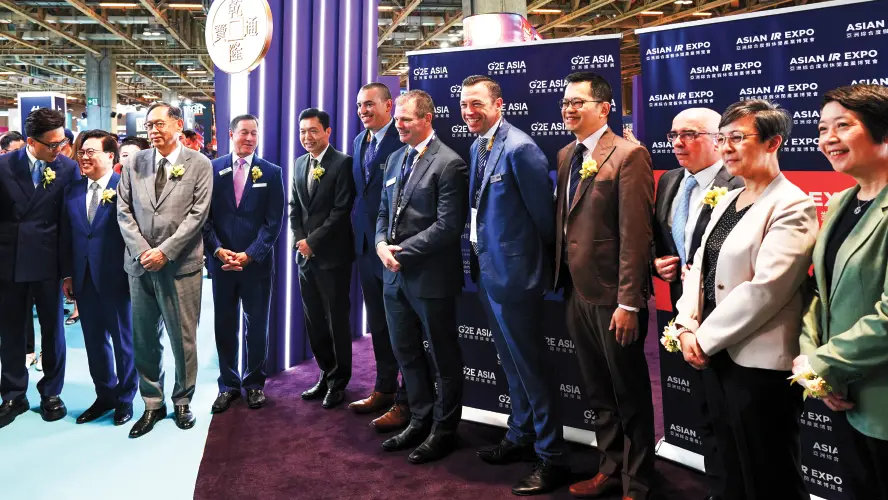
AWS: You mentioned that you had already spent time in Asia, but what have you learned about Asia since being in this role?
HF: Sometimes you hear people talk about product and you hear them talk about Asia and they’re like, “We’re going to tweak our product from North America. We’re going to tweak our product from Australia.” That’s not a winning strategy. One of the things I’ve learned in Asia is you can take the concepts, the overall characters or design, but you need to address the player preferences in this market.
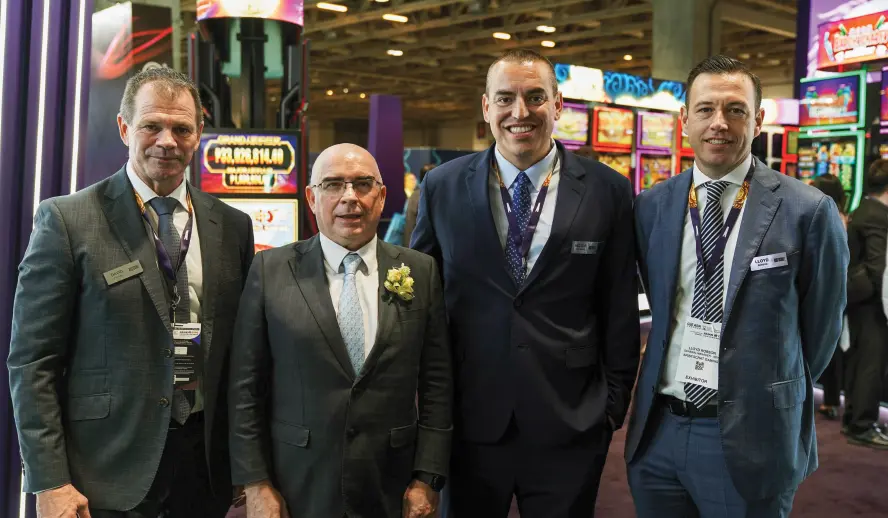 A winning example of that is Dragon Link, one of the greatest games ever created in this industry and one that has been successful globally. But when we were thinking about bringing Dragon Link into Asia, we didn’t just take the Australian math or the Australian version, we didn’t take the North American version. The game designers actually came here, spent time talking to operators, talking to players, building content that actually resonates with the players. They like big jackpots, so we rebuilt Dragon Link from the ground up to enter into this market.
A winning example of that is Dragon Link, one of the greatest games ever created in this industry and one that has been successful globally. But when we were thinking about bringing Dragon Link into Asia, we didn’t just take the Australian math or the Australian version, we didn’t take the North American version. The game designers actually came here, spent time talking to operators, talking to players, building content that actually resonates with the players. They like big jackpots, so we rebuilt Dragon Link from the ground up to enter into this market.
AWS: Has there been anything that has surprised you?
HF: Asia was interesting because, if you go back through the pandemic, Asia was actually the early indicator. [COVID] started here first, and some of the decisions that the team made here we then used to make decisions as it came to North America. We were very fortunate because we had seen some of those impacts.
And then the flip side happened on the recovery side because we recovered in North America first, and so we used a lot of the strategies and the thinking from those experiences in Asia. We always knew Asia was going to recover. There was lots of chatter about whether Macau would ever come back, and there was this belief that it was going to take five-plus years.
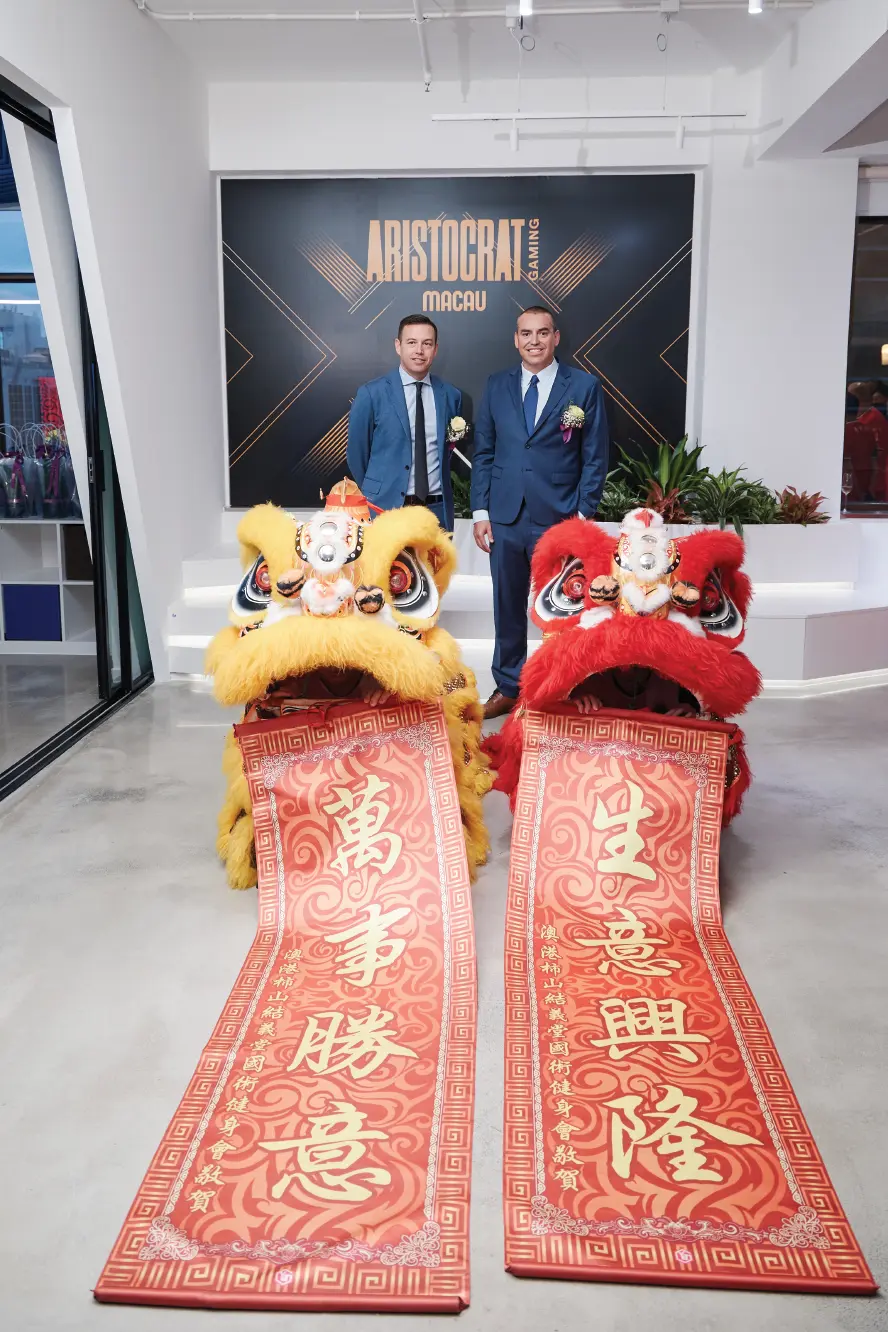 A couple things we did through COVID: we never stopped our investment in R&D and we believed in the fundamentals of this business. We continued to invest when a lot of our competitors stopped investing, and when the recovery happened, we were ready for this market.
A couple things we did through COVID: we never stopped our investment in R&D and we believed in the fundamentals of this business. We continued to invest when a lot of our competitors stopped investing, and when the recovery happened, we were ready for this market.
There were a few surprises for me. A lot of people have this image of what the Philippines is, particularly if you’re from North America or the western part of the world. But the Philippines is a vibrant economy. There’s a lot of growth. The government is working really hard to make it a destination. In fact, the President recently came out and said one of his goals for the country is to make it an integrated resort destination, not just for gaming, but also all the other amenities that come with that.
AWS: Lumping Asia together as one is a mistake because there are so many countries and jurisdictions. What have you noticed about specific differences between jurisdictions within Asia?
HF: Well you start with currency, right? And when we talk about Asia, when we talk about specific countries, we ask ourselves, “What are the things that resonate with the Vietnamese player? What are the things that resonate with the Philippines player or the Korean player or the Chinese player?”
Sticking with the Philippines, some of the things that a player does while playing a slot machine are pretty unique. There’s a lot of banging on the screen, a lot of different superstitious elements behind that. So, we always talk about making content that resonates in a specific country.
You look at Vietnam, for example. We actually take the time to go and look at the different dynamics and we will adjust accordingly, whether it’s math, whether it’s content – lots of different things. I’ll give you an example. As we were looking at Singapore, our customers had a constraint around space, so we went off and developed something called the Slim Cabinet, which is really all around shrinking the footprint of the actual EGM so you can put more EGMs in the same space. We’re the only ones from a competitive standpoint that actually went off and did that, and it’s a good example because a lot of people would look at the Slim Cabinet concept and say, “North America is not requiring it so it doesn’t make sense to invest in that.” We looked at it as being a great opportunity to develop a unique cabinet to fulfill a customer issue.
 If you go down to Singapore today, one of the things we’ve discovered is that our customers have taken that to the next level – they’ve taken their best performing zones and they’ve put the Slim Cabinet in there. Why is that? Because your best performing zone, by definition, has the most traffic, and now they’ve managed to put more slot machines in the same footprint, which has made it more money. So that’s a really good, unique example of the specifics of Asia. It definitely fit for this market and we’re seeing that as a winning solution and a winning strategy. More importantly, we listened to what our customers wanted and we delivered that for them.
If you go down to Singapore today, one of the things we’ve discovered is that our customers have taken that to the next level – they’ve taken their best performing zones and they’ve put the Slim Cabinet in there. Why is that? Because your best performing zone, by definition, has the most traffic, and now they’ve managed to put more slot machines in the same footprint, which has made it more money. So that’s a really good, unique example of the specifics of Asia. It definitely fit for this market and we’re seeing that as a winning solution and a winning strategy. More importantly, we listened to what our customers wanted and we delivered that for them.
AWS: What excites you about Asia in terms of specific markets?
HF: Everything. I mean, that’s the thing that I love about Asia. Even when you look at Macau where there’s some constraints on the number of slot machines that are in the market, that’s just another challenge: how do you drive more innovation to maximize the business in a capped environment?
The other thing we really focus a lot of time on is working not just with our customers, but also our regulators, trying to understand what are the things that they’re trying to achieve, being cognizant of that and then making sure we have the right relationships and the right lines of communication. We’re always staying within the boundaries of what they would like.
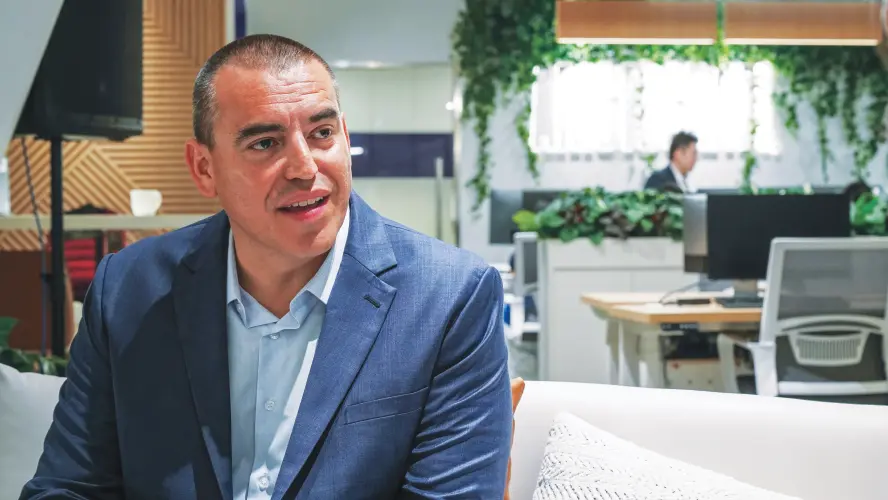 AWS: Moving onto specific markets within Asia and starting with Macau, when Aristocrat released its figures for 1H24 there were some good numbers around replacement sales. Do you see that sort of momentum continuing for Macau?
AWS: Moving onto specific markets within Asia and starting with Macau, when Aristocrat released its figures for 1H24 there were some good numbers around replacement sales. Do you see that sort of momentum continuing for Macau?
HF: Absolutely. If you look at Macau, it was obviously the hardest hit gaming market in the world by the pandemic. It shut down the earliest, opened the latest, and it’s still going through a recovery. So, when we look at the market or even just a slot floor with the content and hardware that exists there, we view that all as an opportunity for growth. But fundamentally I believe it’s about how to solve our customers’ problems.
One of the things we’ve invested in lately is our marketing capabilities. Our philosophy around talent is to identify capability gaps then go and get the best talent in whatever industry they happen to be in. It doesn’t necessarily have to be gaming, so in the marketing world we went to get pharmaceutical talent, biotech talent, because they’ve really mastered the art of direct-to-patient marketing. In analytics, we went out and got someone from financial services because they’ve been really good at not just data and analytics, but more importantly insight. And so, as we’ve built out this business, we’ve taken that strategy to our customers and said, “Hey, we have this capability. But instead of just talking about it, let’s show you the capability.”
One of the things you’ll start to see in Macau and Singapore and Manila is us coming up with some unique activations to really improve the customer experience. And we’re really excited about that.
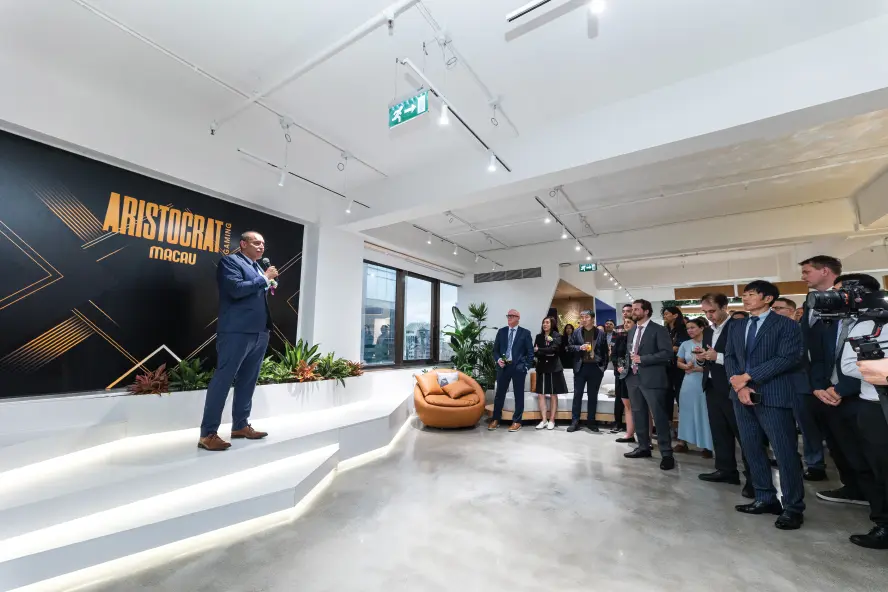 AWS: Our industry has struggled at times to attract top executive talent and top middle management talent. What do you do to attract talent to your company?
AWS: Our industry has struggled at times to attract top executive talent and top middle management talent. What do you do to attract talent to your company?
HF: Our people are our first priority. One of the things we developed through COVID was this people-first culture, which means that every decision we made was people. We thought about our people, our customers. Our people are number one.
People can copy your games and lots of people copy our games. People can copy mechanics, like Hold & Spin, we invented that, but it’s very hard to copy culture, because culture isn’t set by me or the senior-level folks. It’s set throughout the organization. Sustaining cultures are bottom up, not top down, so one of the things we do is we demonstrate this differentiated culture. People don’t want to work for an authoritarian leadership team.
That’s the first thing. The second thing is I’ve personally recruited every single person on my team. I don’t leave it to the HR department or to executive recruiters. I personally do it. And the reason is that talent is the most important decision I make, because ultimately, they’re the ones running the business. They’re the ones making the decisions. They’re the ones making the tough calls.
It’s really being thoughtful about how you build this team while maintaining your culture. The other thing we’re ruthless about as a business is that if you don’t fit within the culture that we’ve created, no matter what capabilities you bring to the table, no matter what experiences you bring to the table, you’re not going to be in the organization.
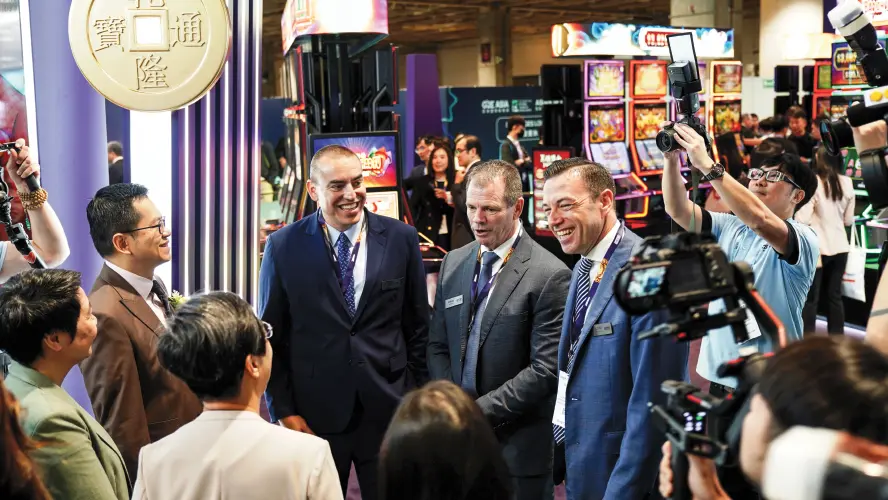 AWS: Let’s talk for a moment about the Philippines, because it’s a super exciting market. What are you doing as a company to really capitalize on that?
AWS: Let’s talk for a moment about the Philippines, because it’s a super exciting market. What are you doing as a company to really capitalize on that?
HF: I think anyone that comes to Asia to visit customers and doesn’t go see the Philippines is making a big mistake because it is such an important market. It is a growth business, and like we were talking about earlier, you can’t make decisions from Vegas. You can’t make decisions from Sydney. You’ve got to be on the ground.
One of the things we’ve invested a lot of time and effort into is having a strong partnership with their regulatory environment and making sure we’re listening to the needs they have as well. The other thing is making localized investments. We were the first to put an office in Manila and we put it in Entertainment City. We put it in the hub of where the regulator is and in the hub of where some of our key customers are as well. We’ve doubled the size of the Manila office over the last year from a headcount perspective. We’re in the middle of potentially expanding our footprint there as well.
We’re also really proud of our local talent. It’s not just about flying people in from other parts of the world to run the business. We’ve invested to bring people on this journey and my hope and my dream is that over the next 10-plus years, every office we have around the world will be run by someone from that country. I think that’s the winning strategy.
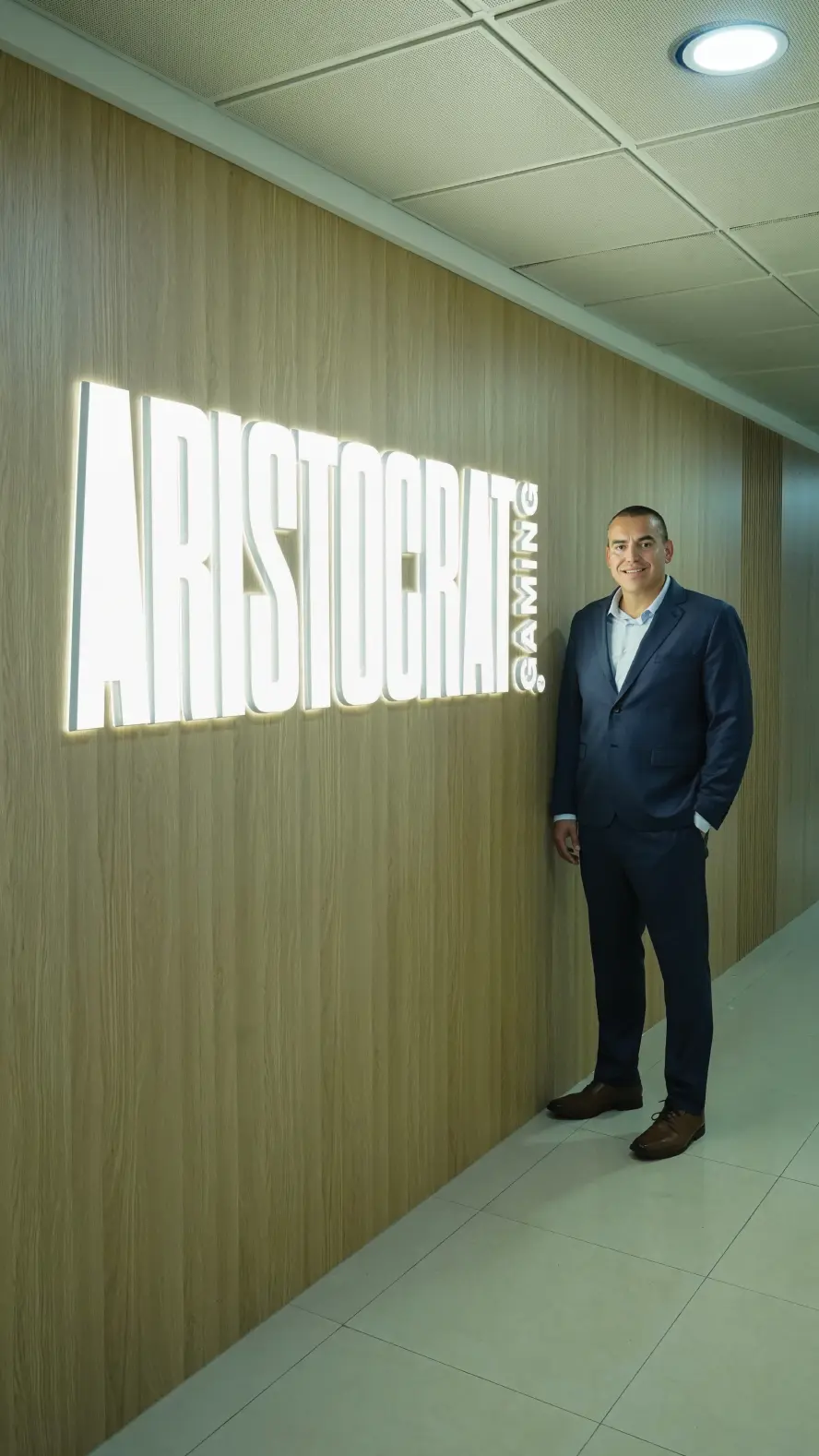 AWS: We spoke earlier about the success of Dragon Link for the company, we’ve seen titles like Lightning Link prove to be tremendously successful and of course going back further to 5 Dragons and everything it has led to since. Are there any other titles or products that are new to the market or coming soon that you’re excited about?
AWS: We spoke earlier about the success of Dragon Link for the company, we’ve seen titles like Lightning Link prove to be tremendously successful and of course going back further to 5 Dragons and everything it has led to since. Are there any other titles or products that are new to the market or coming soon that you’re excited about?
HF: Yes. Part of our investment into Asia is how many studios make content for this region. We have 13 global studios and I’m very proud to say that nine of them are making content for this region. That’s not something that used to happen. And the way our structure works is our studios, while they’re Aristocrat employees, they’re pretty independent and autonomous, so you’re starting to see that from a product perspective. Instead of being a copy of whatever is in the market, their creativity is being infused in this market.
I’ll give you a very specific example. Bao Zhu Zhao Fu is a game, interestingly enough, that we actually designed and built and put it online first to test it. We had different characters, different colors, different settings, different features, and we took the time to test it digitally. And then once we felt like we had a good design, we brought it to the land-based business and we brought it into North America first. We knew it was a great game but we also wanted to give our customers choice, so we didn’t put on recurring revenue there either, we sold it, because we want to make sure our customers feel like we’re giving them holistic value in the portfolio.
Then we brought that game to Asia but again we didn’t just clone it, we rebuilt it for this market, and I was on a floor in Manila watching players play and it’s fascinating to see how they’ve migrated to this game and are really enjoying the mechanics and the metamorphosis behind that game. That’s a good example of a winning title where the design started digitally, became land-based, launched in North America with success and was then rebuilt for this market.
When you look at our Asia portfolio, I think it’s the strongest portfolio we’ve had in this region in a long time, if not ever. It just takes time, and that’s about a three-year journey of us focusing on this market.
AWS: That’s a perfect segue to Aristocrat’s online business and more specifically the fact that you are growing your online real money gaming business via the recent acquisition of NEOGAMES, but of course there is very little regulated online gaming in Asia when compared with Europe and America. Do you find that frustrating as a company, and do you see regulated markets becoming more widespread in Asia in the future?
HF: It doesn’t frustrate us. I actually think that moving slowly in this world makes a lot of sense because there are a few key things that we need to make sure we’re doing right as an industry, and the first thing is really responsible gaming, or as we like to call it internally, positive play. And you need to make sure that as this new [online] industry evolves over time, each individual company is proactively managing that strategy. There will obviously be regulations [around online gaming], but we firmly believe internally that we should be at the forefront or even ahead of some of the regulatory environments and frameworks.
One of the things we did when we launched NFL slots in North America, which was the first sporting play and team-selectable game, we also launched the “Know Your Max” campaign, and no other company had ever done that. It was really around how you allocate your entertainment wallet and how you do it in a responsible way, so “Know Your Max” was really important. I think that governments and jurisdictions have to work with operators and manufacturers to establish what is the right regulatory framework going forward.
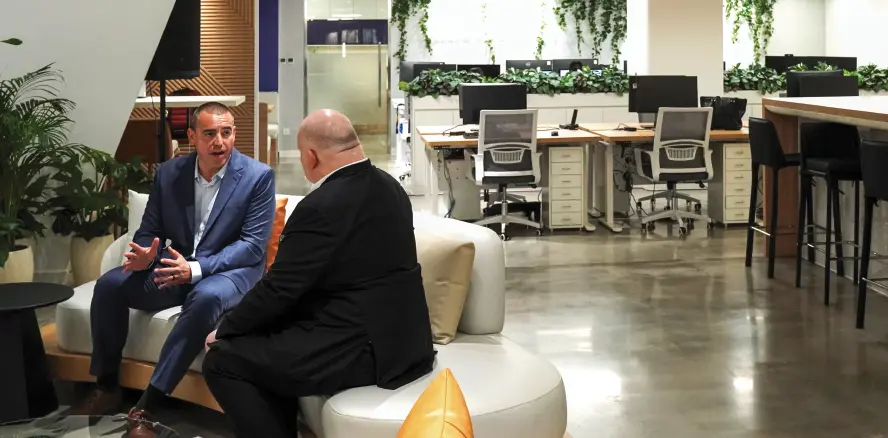 The second thing is really around privacy – making sure, now that you’re getting some additional player information, that there’s all the right privacy controls in place. And the last thing is cyber security – ensuring that there is the right cyber framework so as to avoid many of those things that we’ve started to see happen even in the land-based environment.
The second thing is really around privacy – making sure, now that you’re getting some additional player information, that there’s all the right privacy controls in place. And the last thing is cyber security – ensuring that there is the right cyber framework so as to avoid many of those things that we’ve started to see happen even in the land-based environment.
When you look at our business, we’ve been investing very heavily in responsible gaming and privacy and cyber to get ready for this moment in time, and we want to proactively work with regulators to bring this new option to the forefront.
Ultimately our strategy, like we talked about earlier, is that we believe the player is owned by the land-based operator and our job is to provide content and technology solutions that allow a player to be continually engaged through the ecosystem, whether it’s social gaming, whether it’s land-based gaming, whether it’s real money gaming, all wrapped around a very strong regulatory environment. In a strange way we’re kind of lucky that it’s not regulated as quickly because we wouldn’t have been ready. Now with the NEOGAMES deal closing, we feel like we’re getting ready to provide different solutions within the right environment and within the right framework. Ultimately, we want our customers to be successful.






